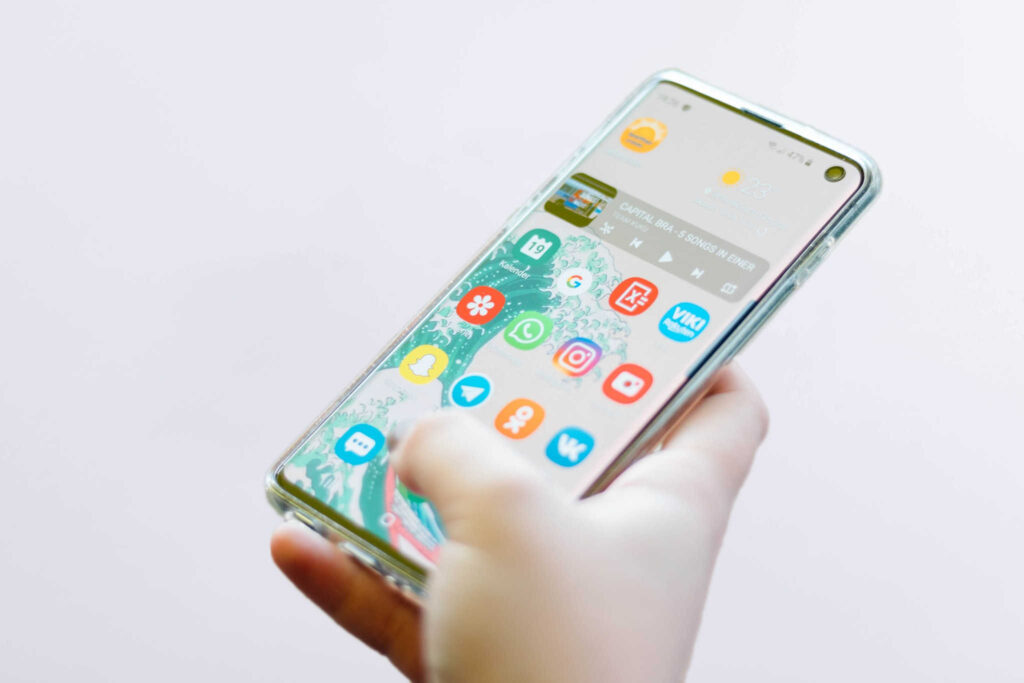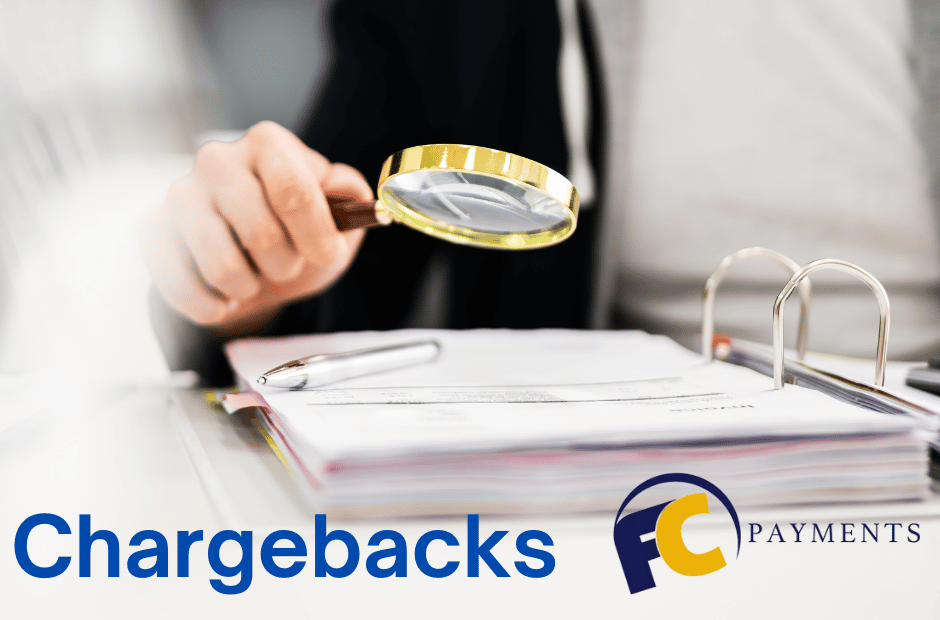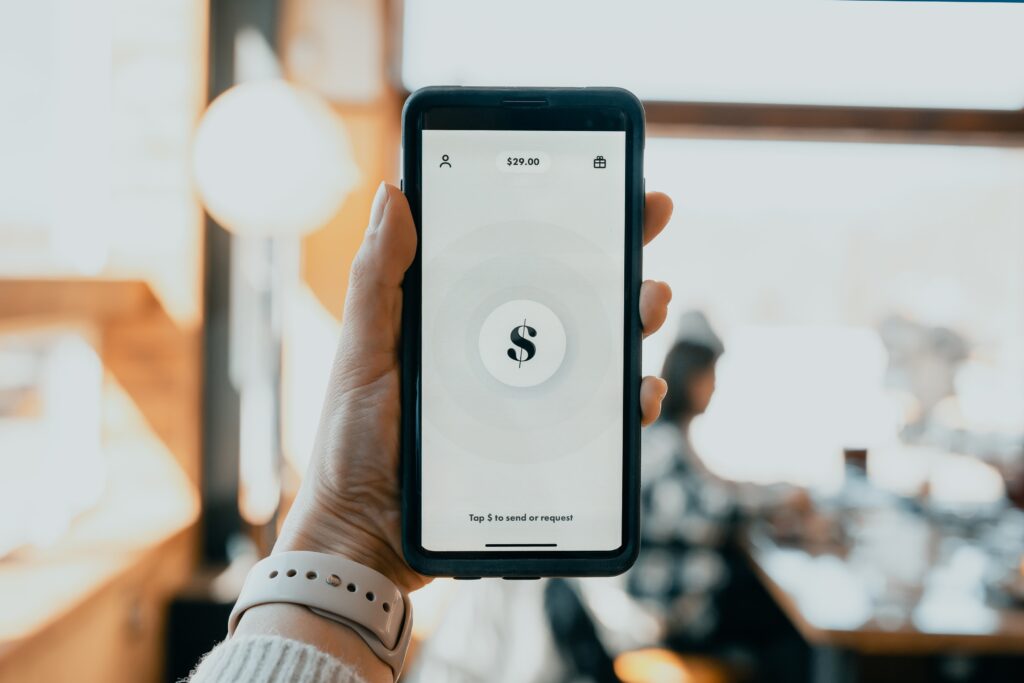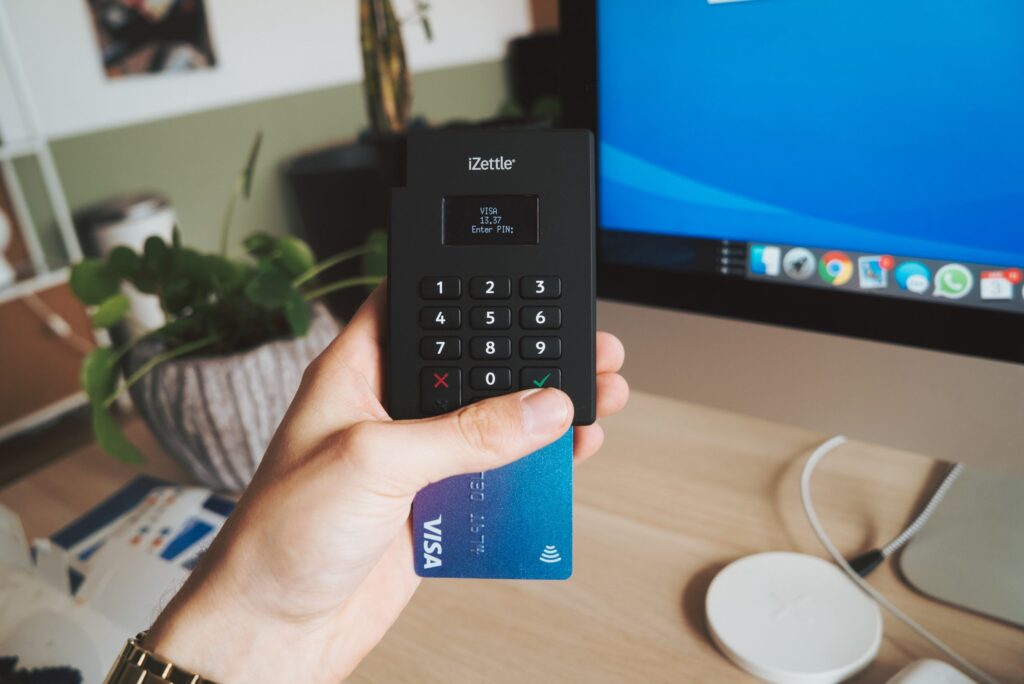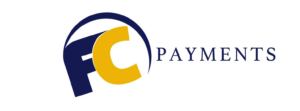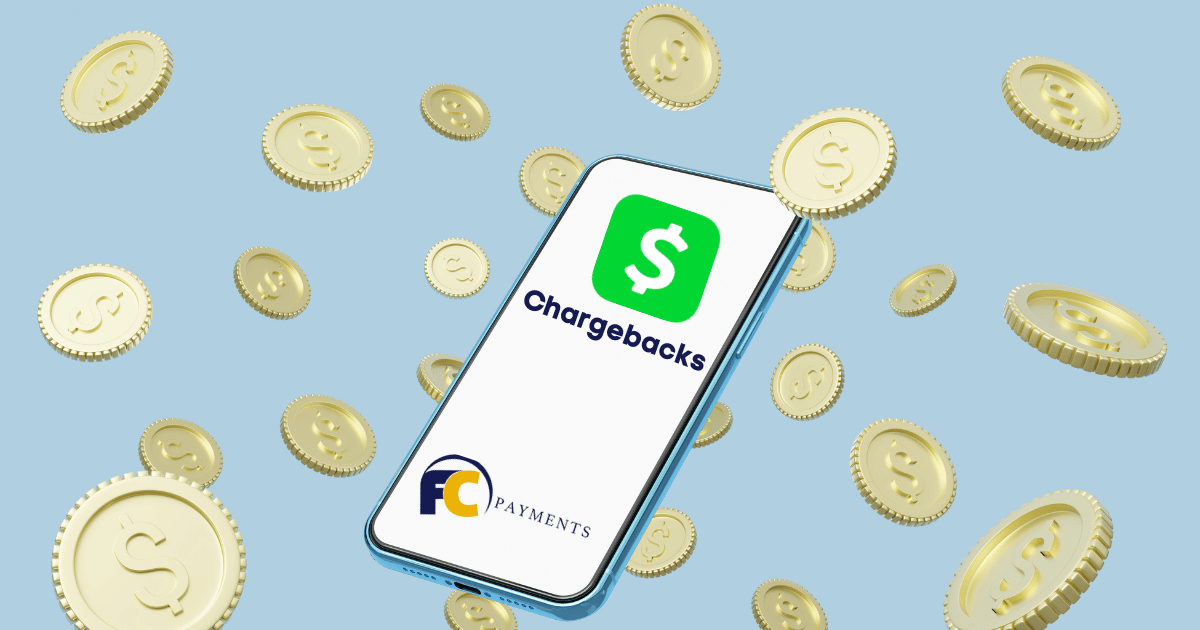
How to Handle Cash App Chargebacks & Disputes: A Merchant Guide
How to Handle Cash App Chargebacks & Disputes: A Merchant Guide
Navigating the world of digital payments can be a daunting task, especially when it comes to disputes and chargebacks. With Cash App’s growing popularity and instant, irreversible transactions, knowing how to handle disputes effectively is crucial for both merchants and users. So, can I dispute a Cash App transaction with my bank? How do you tackle Cash App disputes and chargebacks while ensuring a smooth resolution for all parties involved?
In this comprehensive guide, our high risk merchant experts explore the nuances of Cash App transactions and their dispute processes, outline the steps to initiate a dispute or chargeback, and provide practical tips for a successful resolution. Let’s embark on this journey to better understand Cash App disputes and chargebacks and arm ourselves with the knowledge needed to navigate them confidently.
Quick Summary
- Understand Cash App transactions and dispute processes to manage accounts responsibly.
- Utilize preventative measures, fraud detection tools, and safe usage practices for successful Cash App dispute resolution.
- Recognize potential scams and use First Card Payments for additional security on the platform.
Understanding Cash App Transactions
Cash App has rapidly become a popular choice for digital payments, allowing users to send and receive money instantly through their smartphones. Accessible from the cash app home screen, transactions are irreversible once completed, making it essential for users to exercise caution when making cash app payments and for merchants to be well-versed in the dispute process. Managing cash app accounts responsibly is crucial to avoid any issues or disputes. For any concerns or questions, users can reach out to cash app support.
Cash App offers multiple transaction options, including card-linked transactions, bank transfers, and Cash App balance transfers. Each of these transaction types comes with its own dispute process, and understanding these processes is key to successfully navigating Cash App disputes and chargebacks.
Types of Cash App Transactions
Cash App facilitates a variety of transaction types, including payments made with debit or credit cards, bank transfers, and Cash App balance transfers. For merchants, it is important to understand that card-linked transactions on Cash App are comparable to a chargeback, where buyers initiate a payment cancellation request through the app, and sellers receive a notification to either accept or reject the request.
The consequences of a high frequency of chargebacks for a merchant can be severe, potentially leading to the suspension or closure of their Cash App account. By understanding the different transaction types and their associated dispute processes, merchants can better protect themselves against potential chargebacks and disputes. Take notice that several chargebacks can lead to account suspension.
Instant and Irreversible Payments
The convenience of Cash App lies in its instant payments, allowing users to send money with just a few taps on their smartphones. However, this convenience comes with a catch: once a payment is sent, it is irreversible and cannot be canceled. This makes it crucial for users to double-check recipient information before completing a transaction and for merchants to understand the dispute process in case any issues arise.
The Cash App chargeback process maintains its own cash app dispute process, which involves the following steps:
- Temporarily deducting funds from the recipient’s account while the dispute is being addressed.
- Giving the recipient the opportunity to provide evidence to support their claim.
- Refunding the funds to the person who initiated the chargeback if the recipient cannot provide evidence to support their claim, thus executing a cash app refund money.
Disputing Cash App Transactions: The Basics
When it comes to disputing Cash App transactions, understanding the basics is crucial. Cash App disputes are handled by the Cash App team, while bank chargebacks are managed by the cardholder’s bank. This distinction is important, as the processes and outcomes for these two types of disputes can differ significantly.
To resolve a Cash App transaction, you can either initiate a dispute through Cash App or file a chargeback with your bank, depending on the type of transaction. In the following sections, we’ll delve deeper into the specifics of these two processes and how they apply to different transaction types.
Cash App’s In-House Dispute Process
Cash App has its own in-house cash app chargeback dispute process for card-linked transactions, which is separate from the traditional chargeback process managed by banks. When a dispute is filed, Cash App contacts the merchant for further clarification. After gathering evidence from both parties and evaluating the pertinent information, Cash App determines whether or not to refund the customer.
The response timeframe for Cash App chargebacks is estimated to be 7-14 days. It is essential for merchants to actively participate in the investigation, as the process can be time-consuming, and a lack of response may result in an unsuccessful dispute and the removal of funds from their Cash App business account.
Bank Chargebacks vs. Cash App Disputes
Bank chargebacks apply to card purchases, while Cash App disputes are specific to the app and its transactions. Card-linked transactions are eligible for dispute resolution through a bank, as they are subject to chargeback rights. On the other hand, bank transfers and Cash App balance transfers are not eligible for dispute resolution through a bank.
Understanding the differences between bank chargebacks and Cash App disputes is crucial in determining the appropriate course of action when attempting to resolve a transaction dispute. In the next section, we’ll discuss the scenarios where disputing a Cash App transaction with your bank is possible.
Can You Dispute a Cash App Transaction With Your Bank?
While Cash App disputes are typically handled through the app’s in-house dispute process, there are instances where disputing a Cash App transaction with your bank is possible. This is mainly applicable to card-linked transactions, as they fall under the jurisdiction of your bank’s chargeback rights.
However, not all transaction types are eligible for dispute resolution through your bank. In the following subsections, we’ll explore which types of transactions can and cannot be disputed through your bank and the associated processes.
Card-Linked Transactions
Card-linked transactions on Cash App refer to transactions associated with a customer’s credit or debit card. These transactions can be disputed through your bank since they are subject to chargeback rights. To file a chargeback for a card-linked transaction, you need to contact your bank directly for further assistance.
By understanding which types of transactions can be disputed through your bank, you can better navigate the chargeback process and ensure a successful resolution for any issues that arise with card-linked transactions on Cash App.
Bank Transfers and Cash App Balance Transfers
Bank transfers and Cash App balance transfers are not eligible for chargebacks or disputes through your bank. Bank transfers involve moving funds from one bank account to another, while Cash App balance transfers refer to transferring funds from your Cash App account to the linked bank account.
It’s important to be aware of the limitations when it comes to disputing these types of transactions, as they fall outside the scope of your bank’s chargeback rights. In such cases, it’s crucial to utilize Cash App’s in-house dispute process to address any issues or concerns.
How to Dispute a Cash App Transaction
Initiating a dispute for a Cash App transaction involves either filing a dispute through Cash App or filing a chargeback with your bank, depending on the type of transaction. To ensure a successful resolution, it’s important to gather all relevant evidence to support your claim, including receipts, correspondence, and any other documentation.
In the following subsections, we’ll discuss the steps for initiating a dispute through Cash App and filing a chargeback with your bank, as well as the evidence required to support your claim.
Initiating a Dispute Through Cash App
To initiate a dispute through Cash App, follow these steps:
- Contact Cash App customer support.
- Provide the necessary information and evidence to support your claim.
- Navigate to the profile icon on your account’s home screen.
- Follow the instructions provided by Cash App’s customer support.
It’s important to adhere to the instructions given by customer service and to provide any requested information in a timely manner, as this can greatly impact the outcome when you file a dispute.
Filing a Chargeback With Your Bank
For card-linked transactions, you can file a chargeback with your bank to dispute the transaction. To do so, contact your credit card issuer and submit a dispute, providing them with the pertinent details of the transaction in question. They will then guide you through the chargeback process and investigate the transaction to decide if a chargeback is warranted.
Keep in mind that chargebacks should be used as a last resort after attempting to resolve the issue with the merchant or through Cash App’s in-house dispute process. Excessive chargebacks can result in serious consequences, such as account closure.
Tips for Successful Cash App Dispute Resolution
Successfully resolving a Cash App dispute involves clear communication with the merchant, gathering relevant evidence, and understanding the timeframes involved in the process. By following these guidelines, you can increase your chances of a favorable outcome and minimize the likelihood of disputes escalating into chargebacks or other negative consequences.
In the following subsections, we’ll delve deeper into each of these tips and provide practical advice for ensuring a smooth and successful dispute resolution process on Cash App.
Communicating With the Merchant
Establishing clear communication with the merchant is a crucial first step in addressing any issues that may arise with a Cash App transaction. Before initiating a dispute or chargeback, it’s important to contact the merchant and attempt to resolve the issue directly.
In many cases, merchants may be willing to provide a refund or exchange if they are made aware of the issue, helping to avoid the need for a formal dispute process. If communication with the merchant is unsuccessful, you can then proceed to request a refund through Cash App or file a chargeback with your bank.
Gathering Evidence
Collecting relevant evidence to support your claim is vital for a successful Cash App dispute resolution. This may include:
- Transaction details
- Screenshots
- Emails
- Other documents that provide proof of the issue at hand
Having a strong case with convincing evidence can greatly impact the outcome of your dispute, so it’s essential to take the time to gather all pertinent information before initiating the process.
Organizing your evidence in an orderly fashion can also help the dispute-resolution process go more smoothly.
Understanding Timeframes
Being aware of the timeframes involved in the dispute process is crucial for a successful resolution. Cash App disputes typically take around 10 business days to resolve, so it’s important to be prepared to answer any inquiries that may arise during the review process and to provide any requested information in a timely manner.
By understanding the timeframes and acting promptly, you can increase your chances of a favorable outcome and minimize the likelihood of disputes escalating into chargebacks or other negative consequences.
Preventing Cash App Disputes and Fraud
While understanding the dispute process is essential, prevention is always better than cure. By practicing safe Cash App usage, recognizing and avoiding scams, and using First Card Payments for added security, you can significantly reduce the likelihood of disputes and fraud.
In the following subsections, we’ll discuss these preventative measures in more detail and provide practical tips for ensuring a safe and secure Cash App experience.
Safe Cash App Practices
One of the best ways to prevent disputes and fraud on Cash App is to follow safe usage practices. This includes only sending money to trusted parties and verifying recipient information before completing a transaction.
Merchants can also take steps to prevent fraud by verifying customer information, monitoring transactions for suspicious activity, and utilizing fraud detection tools. By adhering to these guidelines, you can minimize the risk of disputes and fraud on Cash App.
Recognizing and Avoiding Scams
Being vigilant in recognizing and avoiding scams is essential for maintaining a secure Cash App experience. Common scams on the platform include phishing attempts and fake support representatives.
In order to identify and avoid potential scams, it’s important to remain alert for any signs of phishing attempts or fraudulent support representatives. If you encounter any suspicious activity, be sure to report it to Cash App immediately and take the necessary precautions to protect your account.
First Card Payments
Lastly, using First Card Payments on Cash App can provide an added layer of security, as these transactions are subject to chargeback rights and can be disputed through your bank. By opting for First Card Payments, you can ensure a higher level of protection for your transactions and minimize the risk of disputes and fraud.
By following these preventative measures and understanding the dispute process, you can enjoy a safe and secure Cash App experience and effectively navigate any disputes or chargebacks that may arise.
Full Summary
Navigating Cash App disputes and chargebacks can be a complex process. However, by understanding the nuances of Cash App transactions, the differences between bank chargebacks and Cash App disputes, and the appropriate steps to initiate a dispute or chargeback, you can effectively tackle the challenges that come with using this popular payment platform.
By following the practical tips for successful dispute resolution and implementing safe Cash App practices, you can not only resolve disputes but also minimize the risk of fraud and disputes in the first place. Stay vigilant, communicate effectively, and always make sure to gather the necessary evidence to ensure a smooth and hassle-free Cash App experience.
Frequently Asked Questions
Does Cash App refund disputed transactions?
Yes, Cash App may refund disputed transactions if the dispute is resolved in the customer’s favor during the investigation process.
If not, customers may request to escalate the dispute and potentially receive a refund.
Can Cash App transactions be reversed?
Unfortunately, Cash App transactions cannot be reversed after completion. If you’ve sent money to the wrong person, contact them and ask for a refund. Or try to contact your bank for assistance.
Will Cash App refund money if I was scammed?
Unfortunately, Cash App payments cannot be canceled, and thus scammed users must file a chargeback in order to potentially receive a refund.
Cash App will investigate the claim, and if found to be valid, the user may receive a refund.
What types of transactions can be disputed on Cash App?
You can dispute card-linked transactions, bank transfers, and Cash App balance transfers on Cash App, each with its own dispute process.
What is the difference between a bank chargeback and a Cash App dispute?
A bank chargeback involves the cardholder’s bank reversing a transaction, while a Cash App dispute involves Cash App investigating and potentially providing a provisional refund.
My interest in the financial world started to blossom in High School. However, my parents tell me I use to watch financial programs before the age of 5. So, I guess I was born with the Financial bug. In high school I was accepted into their Finance Academy, which I attended for 4 years. In addition to graduating high school, I accumulated a substantial amount of financial knowledge few people experience at such a young age. During which time, I won the State of Florida Stock Market Contest and I also finished in the top 100 in the CNBC stock market contest which had over 1 million participants throughout the country (including some of Wall Street’s elites) with a take home prize of $1 million. These achievements allowed me to be invited to many shows and events with top people in their fields of business from around the world.
No Comments
Sorry, the comment form is closed at this time.


